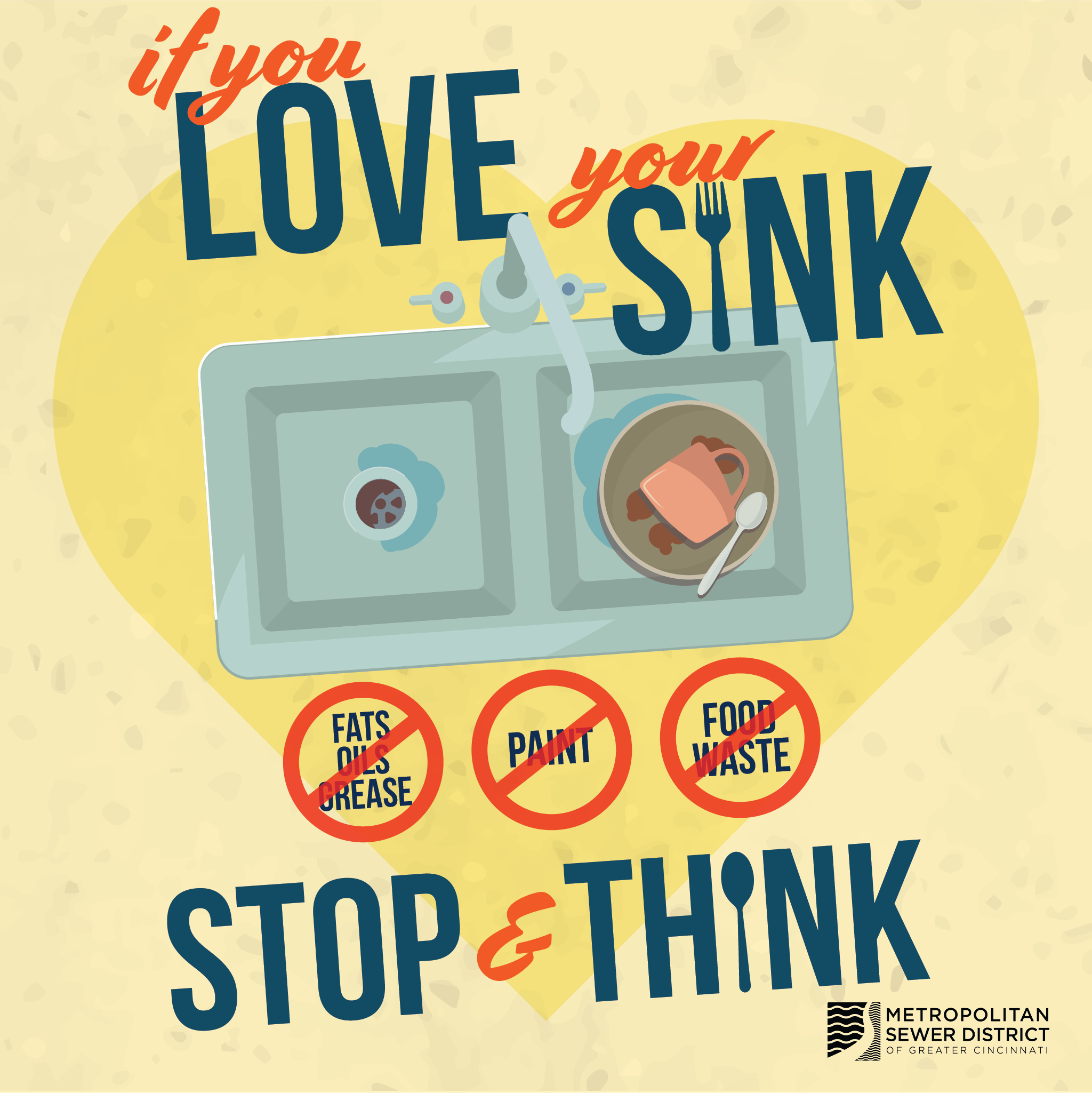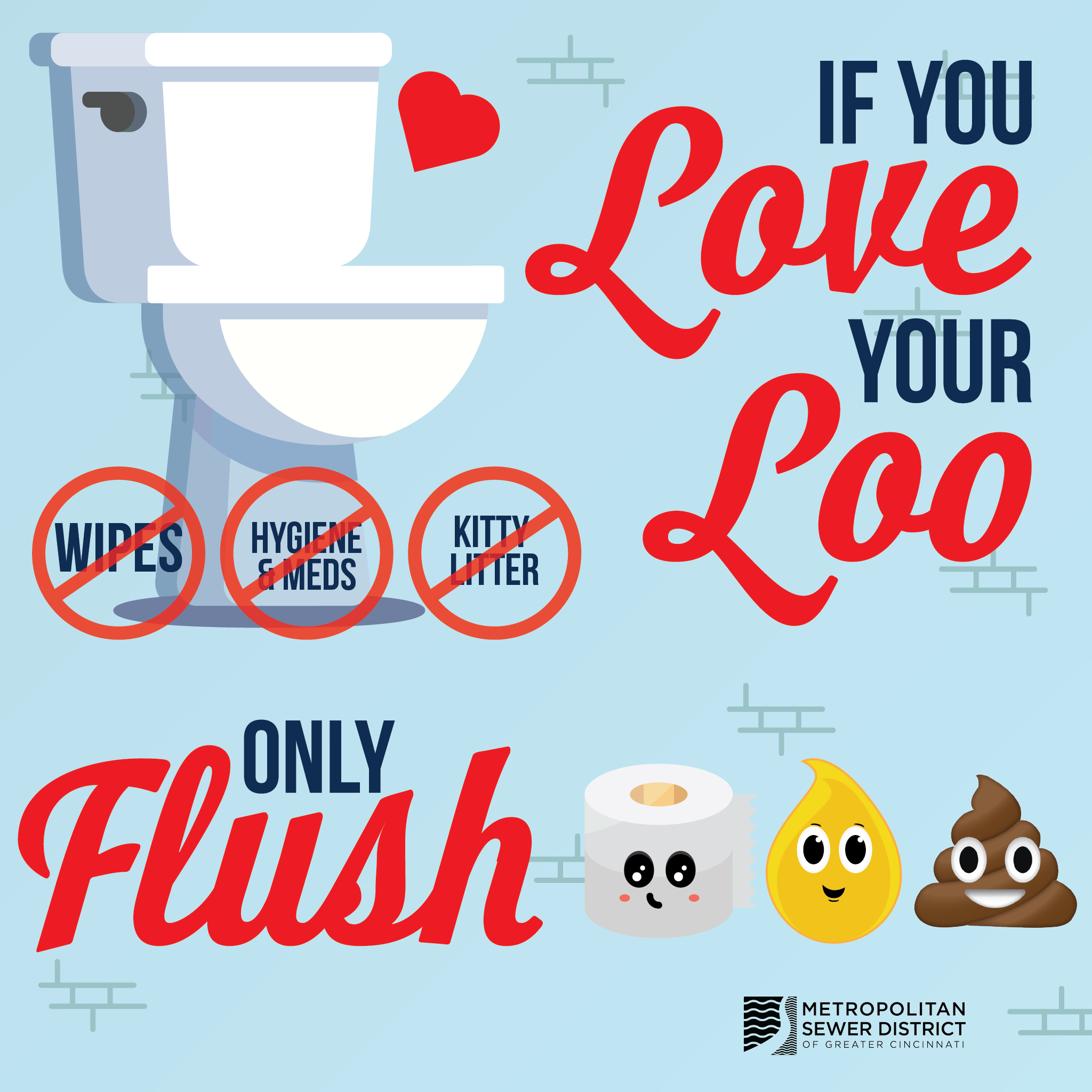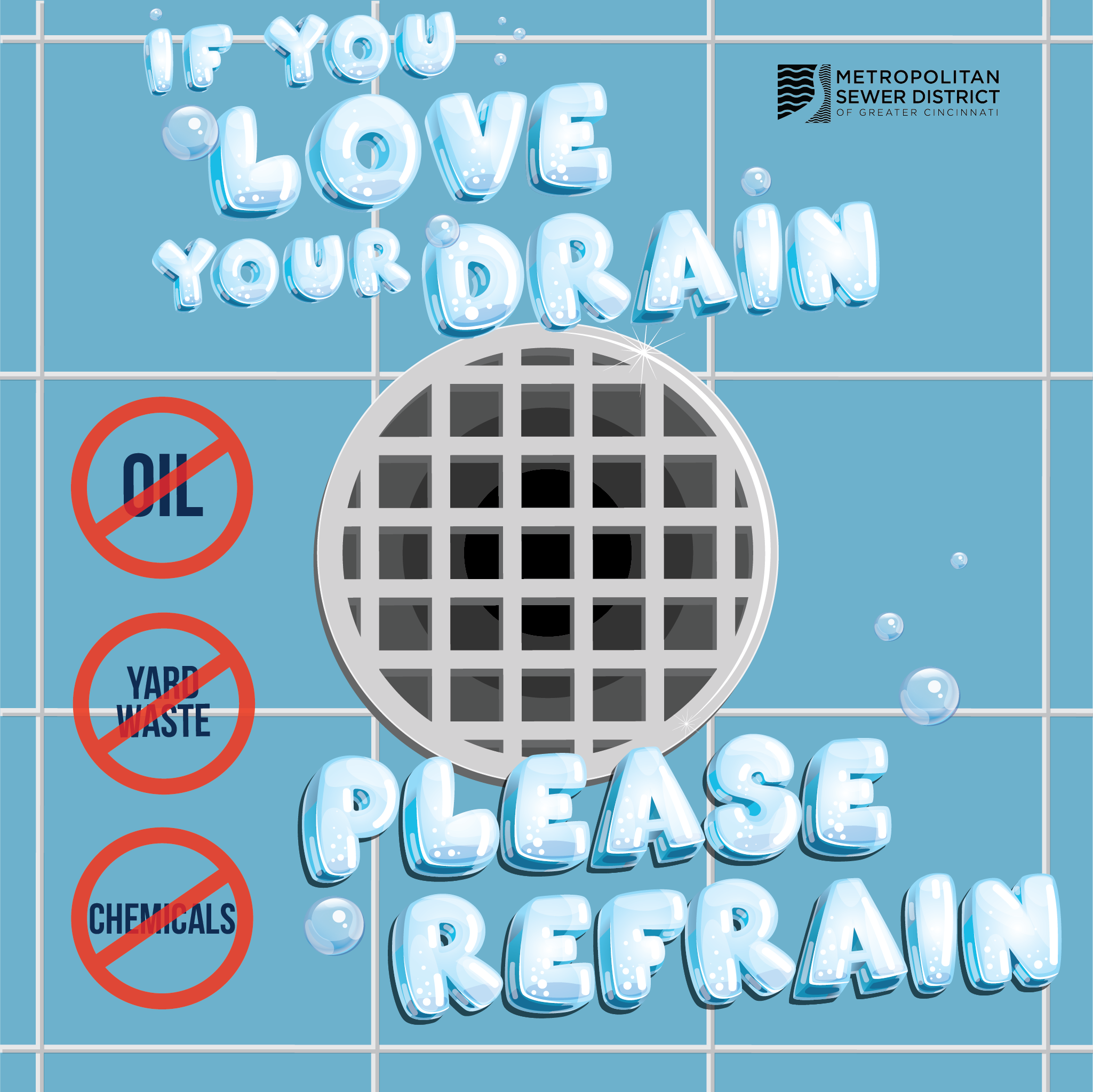What Not to Flush
Flushing the wrong stuff down a toilet or drain can lead to costly home plumbing repairs and sewer backups. It also wreaks havoc with MSD's sewer system and treatment plants.
So keep your money in your pocket and your sewers happy by learning "What Not To Flush."
WHAT NOT TO FLUSH
Here's a list of common items that can clog or block sewer pipes and damage equipment or harm the environment. Please dispose of these items in the trash, through household hazardous waste or drug "take back" programs, or via composting.
- Wet Wipes - Wet wipes are marketed as "flushable," and technically they will flush down the toilet. However, they do not break down in water like toilet paper. Wet wipes are fibrous and can wrap around equipment causing damage or mix with grease and oils in wastewater to clog pipes.
- Fats, Oils and Grease (FOG) - Fats, oils and grease (known as FOG) from food congeal in pipes and restrict or block flow. They also like to mix with wipes and other debris in the sewers to cause "fatbergs," which are congealed solid masses that can cause major pipe damage and sewer backups.

- Personal Hygiene Items - Hygiene items, such as diapers, tampons, sanitary pads, condoms, diapers, dental floss, Q-tips, cotton balls, bandaids, paper towels, hair, etc., do not break down in water and can wrap around equipment and combine with FOG. These items can also end up in our local streams and rivers due to combined sewer overflows during heavy rains. Yuck!
- Kitty Litter Regular kitty litter expands in water, which can lead to clogged pipes. All kitty litter, even the “flushable” kind, poses a potential public health risk due to parasites in the cat waste. So teach your kitty how to use the toilet or put that kitty litter in the trash.
- Chemicals and Yard Waste - Disposing of household hazardous wastes such as motor oil, paints and cleaning products can harm the environment and interfere with MSD's wastewater treatment process. Yard waste can clog sewer pipes and lead to sewer backups.
- Contact Lens - Contact lens do not dissolve in water and are too small to be filtered out at a treatment plant. The treatment process breaks the lenses into plastic fragments known as microplastics, which end up in local streams and rivers where they can adversely affect fish and other organisms and enter the human food chain.

- Food Waste (e.g., coffee grounds, egg shells) - Coffee grounds and egg shells do not break down in water and tend to stick to pipes or clump together and mix with FOG. Over time, they can pack together in a drain and cause clogs.
- Medication - Flushing pills doesn't lead to clogged pipes, but it can contaminate our water supply. Many drugs aren't removed by traditional wastewater treatment so make their way into local streams and rivers.
NOTE: Any solid items larger than 3/8s of an inch that make it through the sewer system are typically filtered out at the treatment plant. Sewage entering the plant is sent through a screening process that removes these items for disposal at a landfill.
